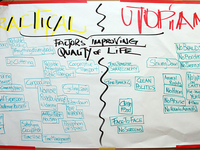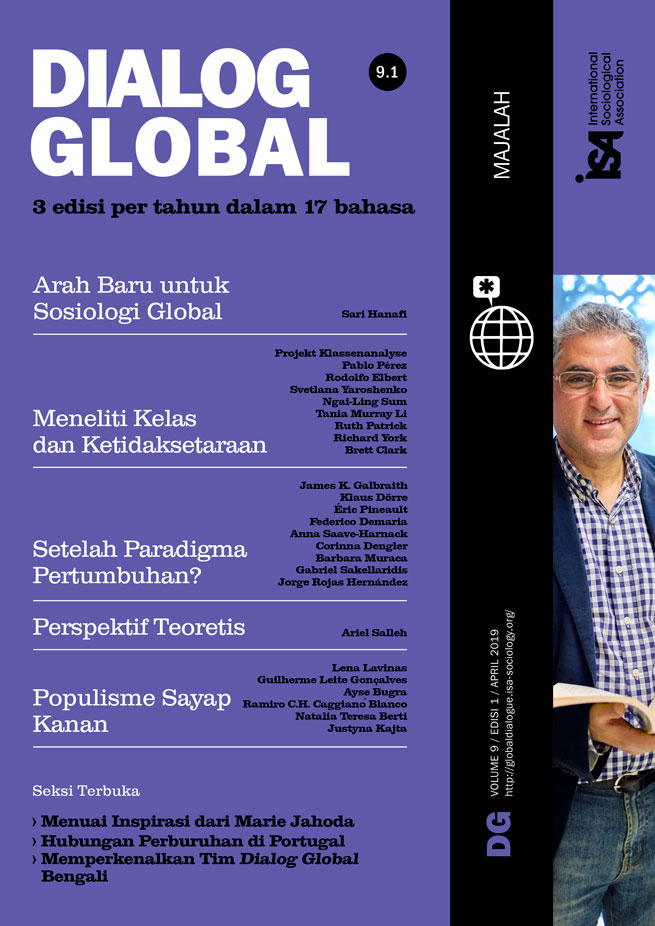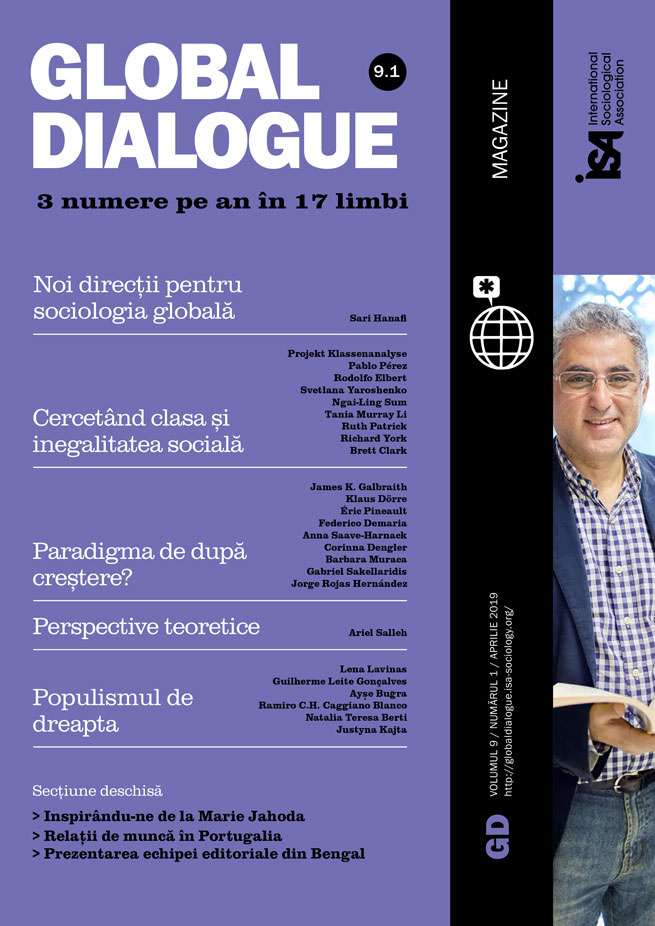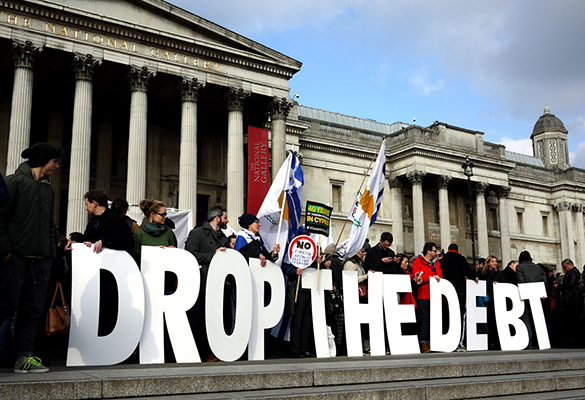It is considered axiomatic in capitalist economies that economic growth is essential for a country to ensure prosperity for its citizens. The allure of growth, however, should not be understood as merely a set of dominant ideas prevalent in public discourse and scientific paradigms. The deification of growth is not simply a matter of “growth ideology” enforced by powerful academic elites and vote-seeking politicians. On the contrary, this “growth ideology” should be seen as the outcome of powerful laws governing the capitalist mode of production, according to which competition, capital accumulation, and profit maximization reside in its genetic code.
The growth imperative has been contested by the idea of degrowth, which emerged with the growing concern for environmental peril. Degrowth can be defined in a nutshell as an “equitable downscaling of production and consumption” in a socially and ecologically beneficial manner. In juxtaposition to the growth imperative, degrowth theorists and activists argue that there are specific social constraints to growth, set by the scarcity of natural resources, climate change, the length of the working day, the quality of life, and several other factors. GDP is considered a misleading indicator of prosperity, since it misses a number of important variables that are not expressed in monetary terms and, moreover, binds society in a race to productivism and consumerism.
In light of the recent global slump that followed the financial crisis, the international production model has been disputed. While economists have questioned it mostly in terms of global current account imbalances, there have been incremental critiques stemming from the “degrowth camp,” approaching the crisis as an opportunity to reorient social priorities away from the quest for growth.
Greece has been at the epicenter of public debates concerning the impact of the imposed austerity, as the country experienced one of the deepest recessions in advanced capitalist countries since the Great Depression; it lost 28.1% of its real GDP from 2008 to 2017, while unemployment skyrocketed from 7.8% to 21.5% in the same period (peaking at 27.5% in 2013). The economic crisis sunk the country into a deep social crisis, reflected also at the political level in the form of a deep representation crisis where entrenched political identities and party affiliations collapsed, while new were shaped.
Given the social setting, the crucial question is whether a sustainable and deliberate degrowth strategy could have proved fertile. If not, as argued here, it is important to highlight what the key mechanisms were that rendered it so difficult. The challenges for degrowth should not be considered reasons to reject its agenda, but on the contrary, should be seen by degrowth theorists as hurdles to overcome in order to strengthen the foundations of their strategy.
As will become evident in the following two paragraphs, both the Troika policy prescription and the left alternatives rotated around the axis of growth and therefore the whole public debate evolved around the growth imperative.
The strategy adopted by the Troika attempted to promote an investment and export-led growth for the Greek economy, advancing the prescription of internal devaluation and structural reforms of the labor and product markets, and targeting the real exchange rate as a strategy to promote competitiveness and put the Greek economy into a virtuous cycle. The results, however, proved a disaster for the vast majority of the Greek people.
The alternative routes proposed by the left to the Troika policy were twofold. On the one hand, those who advocated that Greece should remain in the Eurozone but resided in the “anti-austerity” camp proposed a new “Marshall Plan” that would raise public investment, as well as aggregate demand management that would boost private consumption and investment. In combination with a restructuring of the Greek public debt, this strategy would ensure its sustainability and yield jobs and income through Keynesian mechanisms. On the other hand, the proponents of Grexit claimed that adopting a new national currency nominally devalued against the euro would raise exports and diminish imports, leading to a combination of export-led growth and import-substitution mostly based on manufacturing.
The first challenge to the development of a solid degrowth narrative in Greece emanates from the public debt sustainability and its relation to output growth. From the moment that Greece was confronted by a public debt solvency crisis, debt sustainability became the goal of the pursued policies, at least rhetorically. The key variables for public debt sustainability are fiscal primary balances and the relationship between interest rates on government bonds and nominal output growth rates. If the nominal growth rate is less than the interest rate, the so-called “snowball effect” is triggered, raising public debt, even under a primary surplus. Output growth then becomes the most crucial variable for public debt sustainability. Under such pressing circumstances, proposals for a “degrowth” strategy have little appeal.
The second challenge originates from the financialized form of contemporary capitalism and is associated with debt deflation, which ensnares an economy into a “private debt-recession” vicious circle. Capitalist economies are money-production economies, and the balance sheets of their units are interlinked through a complex financial network. Under the presence of excessive private debt, a recession raises the debt burden, leading to a debt deflation.
The third challenge is associated with unemployment and its concomitant social costs. It is needless to argue that an unemployment rate that peaked at 27.5% in 2013, when it was 7.8% in 2007, shook the foundations of Greek society, and also posed significant political risks. Given that employment bears a strong positive correlation to economic growth, the policy agenda in Greece has inevitably been tied to a growth strategy, with the pressure to address high unemployment in real political time causing path-dependency to prevail. In other words, since there was no preparation for a degrowth strategy able to create new jobs, the “business-as-usual” paradigm dominated public debates, i.e., higher growth - more jobs.
The fourth challenge stems from the fact that a capital inflow-starving economy, like the Greek one during the recession, lowers its environmental standards significantly to attract investments. The new legislation on fast-track investments has been a validation of the above tendency. There are numerous investment examples that would have raised social resistance before the crisis, but nowadays are deemed socially legitimate. These include the new extractivism projects, including new gold mines at Chalkidiki in Northern Greece, or the exploration contracts that the Greek government has signed with oil companies for the exploitation of oil and natural gas reserves in the Ionian and Cretan seas. Another example of this thirst for growth is the concession of the former Athens airport at Elliniko, which the current government had committed to converting into a metropolitan park, to an enormous real-estate plan under pressure from foreign and domestic investors.
The economic nature of the challenges that a “degrowth agenda” has to counter does not entail an acceptance of economism. It does, however, pose specific constraints that need to be well understood because of their importance in a “growth economy.” Avoiding them, as “facets of economism” simply ignores reality and weakens possibilities for a degrowth strategy.
At the same time, it would not be fair to argue that alternative methods of organizing production or questioning the consumption pattern did not emerge in Greece during the crisis. On the contrary, a number of such initiatives were born, albeit at a local level, including time banks, urban gardening, “no-middlemen” networks for agricultural goods, and even self-management business ventures. Nevertheless, these initiatives were often fragmentary and could not comprise a viable alternative, especially under the pressing conditions of a deep recession. They do, however, encapsulate the seeds of a counter-paradigm of social organization, ideologically questioning the dominant perception of social needs and reorienting them toward environmental preservation and economic democracy. They confront economism and put social needs at the center of production and consumption patterns.
Gabriel Sakellaridis, University of Athens, Greece <Gabriel.sakellaridis@gmail.com>




















